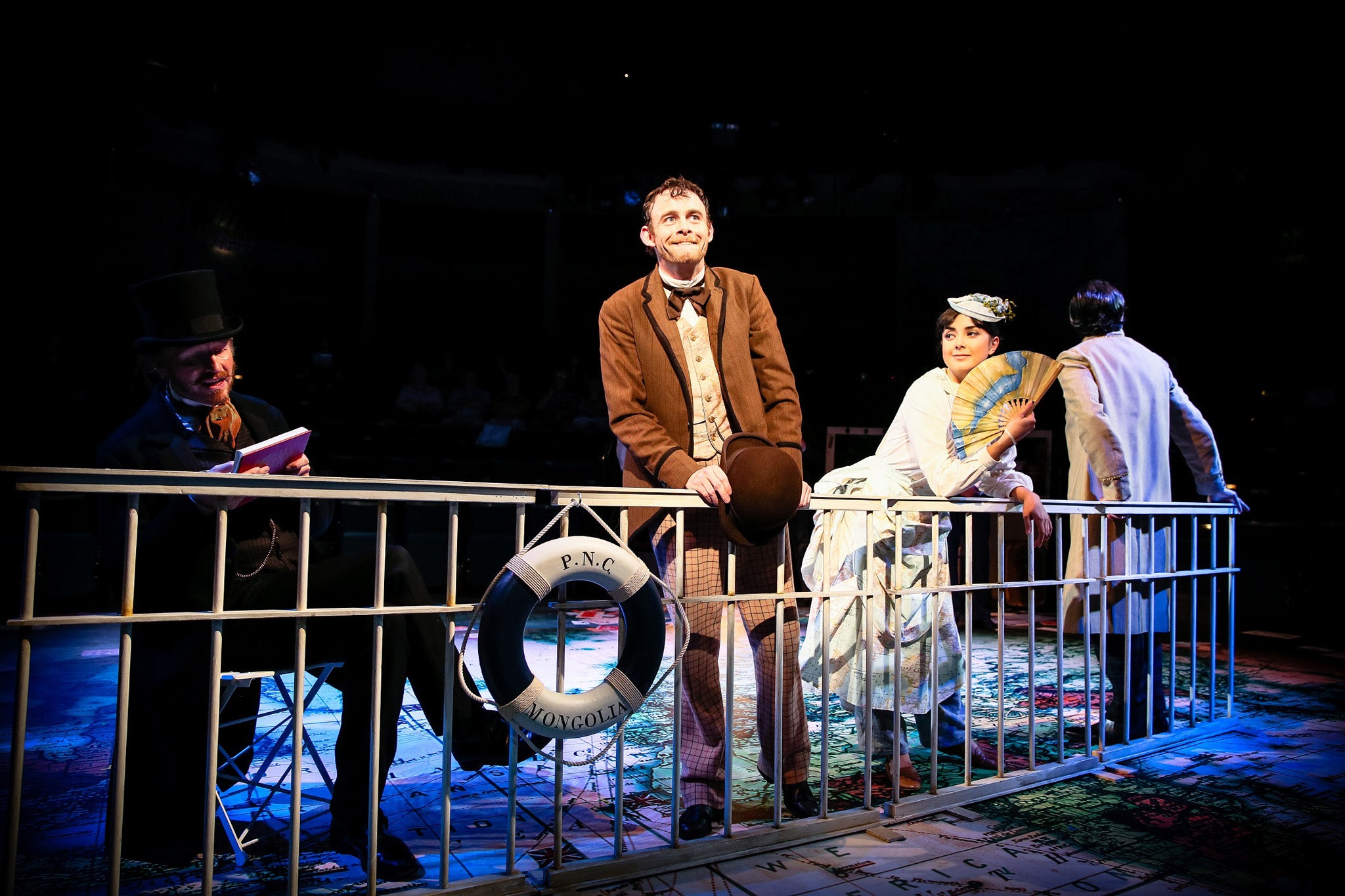Around the World in Eighty Days, Royal Exchange Manchester, review

Your support helps us to tell the story
From reproductive rights to climate change to Big Tech, The Independent is on the ground when the story is developing. Whether it's investigating the financials of Elon Musk's pro-Trump PAC or producing our latest documentary, 'The A Word', which shines a light on the American women fighting for reproductive rights, we know how important it is to parse out the facts from the messaging.
At such a critical moment in US history, we need reporters on the ground. Your donation allows us to keep sending journalists to speak to both sides of the story.
The Independent is trusted by Americans across the entire political spectrum. And unlike many other quality news outlets, we choose not to lock Americans out of our reporting and analysis with paywalls. We believe quality journalism should be available to everyone, paid for by those who can afford it.
Your support makes all the difference.School’s out and in celebration the Royal Exchange is offering an exhilarating version of Around the World in Eighty Days which is as near to a sophisticated summer panto as could be imagined.
The Jules Verne classic – in which wealthy bachelor Phileas Fogg bets his entire fortune on a wager that he can circumnavigate the globe in 80 days after the opening of the Great Indian Peninsular Railway in 1870 – has been transformed into a gloriously silly frolic which takes the audience on a journey around the world with Fogg and his manservant, Passepartout, a hapless Frenchman who gets into scrapes wherever he goes.
The dramatisation, by an American, Laura Eason, retunes Verne’s romantic derring-do – at least that’s what I remember from the abridged version I read as a schoolboy – into a gentle satire whose whimsical wit underscores the eccentricity of the cavalier spirit of adventure at the high point of English imperialism.
The play fairly hurtles through the speedy journey – compressing Verne’s 1,920 hours into a breakneck 120 minutes – from boat to train to elephant when Fogg discovers the Indian railway is not finished after all.
With more than 100 characters, played by just eight actors, it speeds through a cavalcade of clichés – swapping bowlers to berets to Italian boaters, and then to Indian turbans, colonial pith helmets, coolie conicals and cowboy Stetsons. But it transforms them through irony, like a Feydeau rewrite of the wartime sitcom 'Allo 'Allo! Politically-correctness only rears its head when Eason swaps Red Indians for Wild West bandits in the attack upon the US Prairie train.
The show is directed with imagination by Theresa Heskins, with some very clever tableaux – a rolling ship, careening sleigh, and plunging elephant ride – from movement director Beverley Edmunds who produces some memorable comic cartoon-fight choreography and candy-striped acrobatics from an extraordinarily versatile cast who are precise without being slick in their slapstick.
Michael Hugo, as Passepartout, is a heart-stealer with some engaging cheeky-chappy interaction with the audience. Dennis Herdman is a boo-worthy comic villain as the inept Inspector from Scotland Yard who decides Fogg is a bank robber. And Okorie Chukwu is breathtakingly acrobatic in no fewer than 30 cameo roles.
Andrew Pollard convincingly transforms the straight-man Fogg from a rigid London gentleman, who lives his life by clockwork precision, into a phlegmatic and stoical coper with crises, and then a rounder character as he slowly falls for the beautiful young widow he rescues from ritual death in India.
Rebecca Grant, as the widow, is suitably demure and yet twinklingly mischievous as Fogg awkwardly asserts the better qualities of Victorian imperialism. “Any Englishman would have done the same,” he says. But the man who returns to London is not the same man he was on departure.
The audience gave a huge spontaneous cheer when Fogg re-entered the Reform Club to claim his winnings. And at the end many of them rose in standing ovation for this beautifully-executed magnificently preposterous romp.
Join our commenting forum
Join thought-provoking conversations, follow other Independent readers and see their replies
Comments